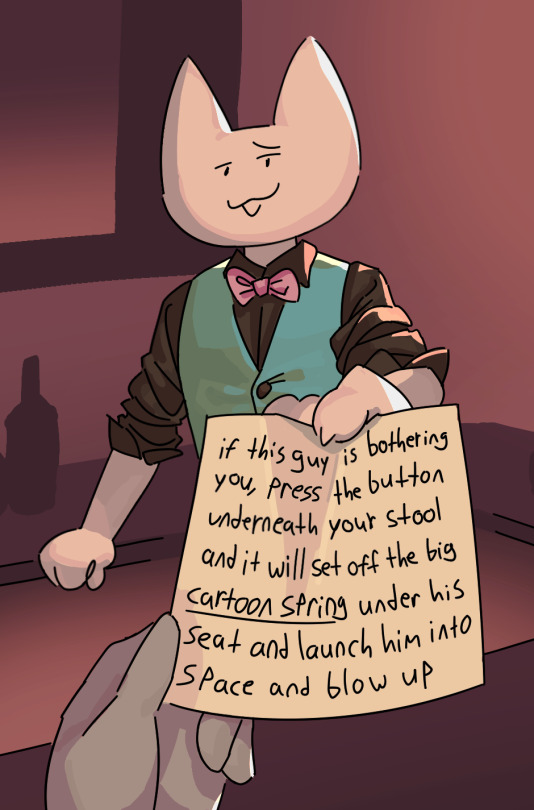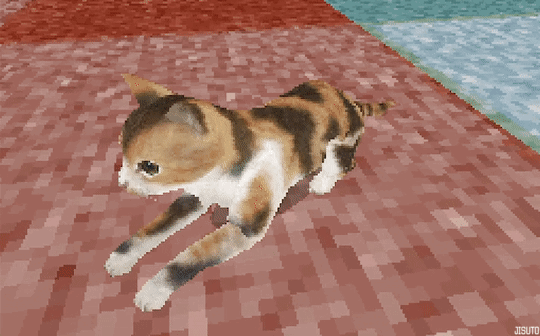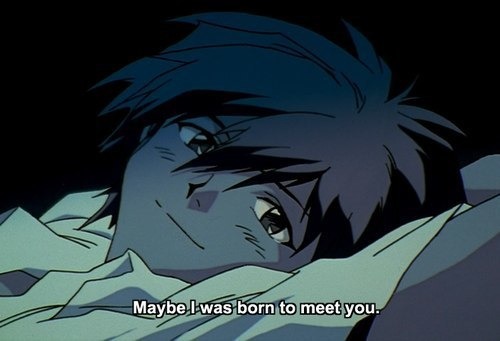Text

Title/Name: Shroomjak Forest & Riverbed Wojak Series: Shroomjak (Variants) Image submission by: wrenchwenches on Tumblr Image by: Unknown Main Tag: Shroomjak Wojaks
13K notes
·
View notes
Text

doing redesigns for my funger modern au d'arce i love you forever and ever
1K notes
·
View notes
Text
The mcelroys made an entire generation think that playing D&D badly is activism
12K notes
·
View notes
Text
In contrast with professional drag queens, who were only playing at being women onstage, [Esther] Newton learned that the very bottom of the gay social hierarchy was the province of street queens. In almost total contrast to professional queens, street queens were "the underclass of the gay world." Although they embraced effeminacy, too, they did so in the wrong place and for the wrong reason: in public and outside of professional work. As a result, Newton explained, the street queens "are never off stage. Their way of life is collective, illegal, and immediate." Because they didn't get paid to be feminine and were locked out of even the most menial of nightlife jobs, Newton observed that their lives were perceived to revolve around "confrontation, prostitution, and drug 'highs'." Even in a gay underworld where everyone was marked as deviant, it was the sincere street queens who tried to live as women who were punished most for what was celebrated-and paid-as an act onstage. When stage queens lost their jobs, they were often socially excluded like trans women. Newton explained that when she returned to Kansas City one night during her fieldwork, she learned that two poor queens she had met had recently lost their jobs as impersonators. Since then, they had become "indistinguishable from street fairies," growing out their hair long and wearing makeup in public-even "passing" as girls in certain situations," in addition to earning a reputation for taking pills. They were now treated harshly by everyone in the local scene. Most people wouldn't even speak to them in public. Professional drag queens who didn't live as women still had to avoid being seen as too "transy" in their style and demeanor. One professional queen that Newton interviewed explained why: it was dangerous to be transy because it reinforced the stigma of effeminacy without the safety of being onstage. "I think what you do in your bed is your business," he told Newton, echoing a middle-class understanding of gay privacy, "[but] what you do on the street is everybody's business."
The first street queen who appears in Mother Camp is named Lola, a young Black trans girl who is "becoming a woman,' as they say'." Newton met Lola at her dingy Kansas City apartment, where she lived with Tiger, a young gay man, and Godiva, a somewhat more respectable queen. What made Godiva more respectable than Lola wasn't just a lack of hormonal transition. It was that Godiva could work as a female impersonator because she wasn't trying to sincerely live as a woman. Lola, on the other hand, was permanently out of work because being Black and trans made her unhireable, including in female impersonation. When Newton entered their apartment, which had virtually no furniture, she found Lola lying on "a rumpled-up mattress on the floor" and entertaining three "very rough-looking young men." These kinds of apartments, wrote Newton, "are not 'homes.' They are places to come in off the street." The extremely poor trans women who lived as street queens, like Lola, "literally live outside the law," Newton explained. Violence and assault were their everyday experiences, drugs were omnipresent, and sex work was about the only work they could do. Even if they didn't have "homes," street queens "do live in the police system."
As a result of being policed and ostracized by their own gay peers, Newton felt that street queens were "dedicated to "staying out of it" as a way of life. "From their perspective, all of respectable society seems square, distant, and hypocritical. From their 'place' at the very bottom of the moral and status structure, they are in a strategic position to experience the numerous discrepancies between the ideals of American culture and the realities." Yet, however withdrawn or strung out they were perceived to be, the street queens were hardly afraid to act. On the contrary, they were regarded by many as the bravest and most combative in the gay world. In the summer of 1966, street queens in San Francisco fought back at Compton's Cafeteria, an all-night venue popular with sex workers and other poor gay people. After management had called the police on a table that was hanging out for hours ordering nothing but coffee, an officer grabbed the arm of one street queen. As the historian Susan Stryker recounts, that queen threw her coffee in the police officer's face, "and a melee erupted." As the queens led the patrons in throwing everything on their tables at the cops-who called for backup-a full-blown riot erupted onto the street. The queens beat the police with their purses "and kicked them with their high-heeled shoes." A similar incident was documented in 1959, when drag queens fought back against the police at Cooper's Donuts in Los Angeles by throwing donuts-and punches. How many more, unrecorded, times street queens fought back is anyone's guess. The most famous event came in 1969, when street queens led the Stonewall rebellion in New York City. Newton shares in Mother Camp that she wasn't surprised to learn it was the street queens who carried Stonewall. "Street fairies," she wrote, "have nothing to lose."
Jules Gill-Peterson, A Short History of Trans Misogyny
7K notes
·
View notes
Text
Americans genuinely cannot comprehend how seriously Europeans take partying. I didn't comprehend it until I was there, and able to observe how all European infrastructure is built around supporting the public right to cross three national borders to go to an illegal rave in a world war ii ruin while chain-smoking and drinking Club Mate. this sounds like a joke but I'm not kidding Europeans never mention it because to them it's normal, Americans never mention it because we can't conceive of a world where bars don't bodily throw you out the front doors at 1:45am to drive home drunk (the busses stopped running at 10pm and there are no trains) because if they don't they will be fined millions of dollars by the city and raided by police for violating the municipal Gay in Public ordinance which persists on the books of the "most progressive city in the country"
42K notes
·
View notes
Text

new yuri image for desperate lesbians just dropped
32K notes
·
View notes
Photo




Courtney Love, regularly stage diving in 1994 and 1995.
420 notes
·
View notes
Text



oh my god thye're even riffing on disney for their copyright bullshit
152 notes
·
View notes










